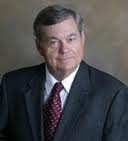 I was born in a small mountain village in the north of Spain in 1943, so I do not remember the horrific Spanish Civil War of 1936-39 when over one million Spaniards died. But as I grew up, the family conversation frequently focused on the savagery and depravations of that era. I had missed nothing good.
I was born in a small mountain village in the north of Spain in 1943, so I do not remember the horrific Spanish Civil War of 1936-39 when over one million Spaniards died. But as I grew up, the family conversation frequently focused on the savagery and depravations of that era. I had missed nothing good.
In March 1949 we loaded a cattle cart with our few belongings, drove to the train station and via TWA flew from Madrid to Lisbon, to the Azores, to Gander, Newfoundland, with touchdown in NYCity. We arrived on my sixth birthday. My mother having been born in the US during her parent’s short visit here allowed us to leapfrog the thousands waiting for the very restricted immigration quota from Spain to the US, only 320 persons per year with thousands waiting. We would never have arrived.
I’m not sure my young parents knew what to expect in the States, but we knew we had just left a tyrannical country with bandleader Generalissimo Francisco Franco in charge of torture and death. Spain was then a country of intense hunger, and back-breaking work, full time work for both my parents by age 12. We did know we were now in the US, then and now the greatest country in the world.
Like so many immigrants my parents went to work at menial jobs, moved on to better over time, bought a car, bought a house, and eventually, with hard work and frugality the American dream arrived at the Lavin’s door step. What a country!
All during those days and into college age for me we lived in a $12 a month apartment in back of a creamery in downtown. We never felt poor, we were well fed, clothed, housed and happy. If you needed to heat the water over the stove to bathe, so what. In Spain we had no running water at all in the house, one had to go to the spring to get it, daily.
Illness interrupted the dream for my mother, as at age 35 she came down with cancer. Two years later she succumbed to that horrible disease and her dreams ended, but not those of her family.
I was very close to my mother, listened to what she said, as she was very intelligent, persistent and directed, mostly no-nonsense. That she sat in a school classroom for only three months of her life failed to diminish her smarts. She had them in spades with enormous drive. And she was observant.
One would think that if both parents are working long hours at low pay, there would be disappointments. Nothing could be further from the truth. From the moment they arrived they were taken in by the US, its people, the wonderful, safe life here, and the ability to live well and prosper through hard work.
As a six and seven year old one sees and hears things he remembers for the rest of his life. I remember well the oohing and awing at the wonderful and plentiful white bread they found here. After eating nothing but hard, nasty, black bread without taste, something as simple as white bread was a revelation.
One day my mom came home from her dish washing job in a bit of a huff. I asked her about her problem and what was bothering her. Turned out she was angry at some of her co-workers at the restaurant kitchen. For some reason I do not remember, they had rebelled at some minor occurrence, leading to what she felt was an unnecessary and unreasonable confrontation with the owner, which upset her greatly. She said the employees were wrong and that the owners were caring people who never asked employees to do anything they wouldn’t do.
Then came one of those jewels of thought that carries with you all of your life, a thought that you see constantly repeated. With a strained matter-of-factness she said, “This is an incredible country, none can be better, we are very lucky to be here, pero aqui no hay bastante hambre (but there is not enough hunger here).
I knew exactly what she meant even at my young age.
When you are truly hungry day after day, never with a full stomach, it does something to you.
For years my folks spoke of food depravation they had suffered and the abundance they found here. It puzzled them that Americans often seemed so little driven to keep a job or strive for excellence, as they well knew the struggle life can be. Why would some Americans not strive for best?
In time their food hunger was replaced by car hunger, house hunger, better life hunger, rural land hunger, vacations and all the same things most Americans sought then (1950s). We got them all.
But the food hunger was never forgotten, never entirely vanished. In the Spanish culture of the time, food hunger was omnipresent, it drove one to work to eat.
How prescient was Rafaela Camelo Lavin all those years ago to see the waning of American hunger for better which had just won a First World War, survived a Great Depression, won an even worse Second World War, and was now in the throes of the great post-war affluence.
Even then she worried there was not enough hunger in Americans. Where the country has gone since her death in 1957 seems at this point an unfinished story, but I know just as Chief Joseph shed tears over litter years ago, Rafaela would be shedding tears over people who can work but live without working. She would wonder why we would do that to people when she knows work stems hunger, all hunger.
Industry hunger
Now as an industry we have been on a “home hunger” for 15 years. Hunger usually drives one to make changes to relieve or abate the hunger.
Are we baking a larger industry pie to eat better, or cutting the one we have into ever smaller pieces?

Is hunger driving us to do the right things, the hard things, or like in the Spanish Civil war, will our industry winners be slightly less destroyed than the losers, just a very few lucky ones relieving their hunger?
The country seems headed to perdition, our habit of letting people eat, be housed and live normal lives without working destroys hunger and the need to behave properly in order to stem hunger. HUDVille, like the country, seems to miss the need to stem hunger.
Will this be the final step my mother saw those many years ago when she says, “Este es un gran pais y industria, pero no hay bastante hambre.
Rest in peace, my loving Rafaela. ##
 by Martin V. Lavin
by Martin V. Lavin
(Editor’s note: Marty Lavin is arguably one of the most successful people in our MH Industry. Totaro Award winner, with extensive, successful experience in MH Lending, MH Retail and MH Communities, he’s a person of deep, caring thoughts and often penetrating insights.)



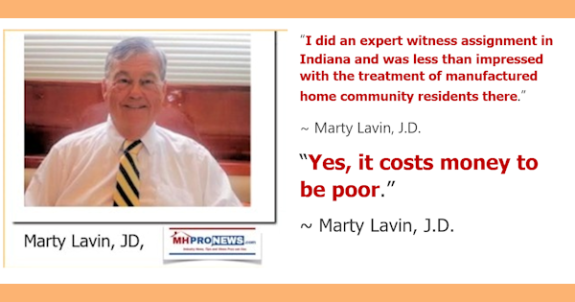
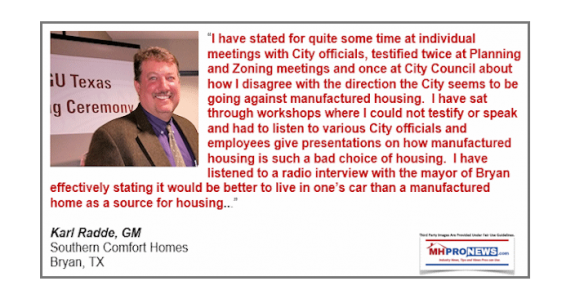

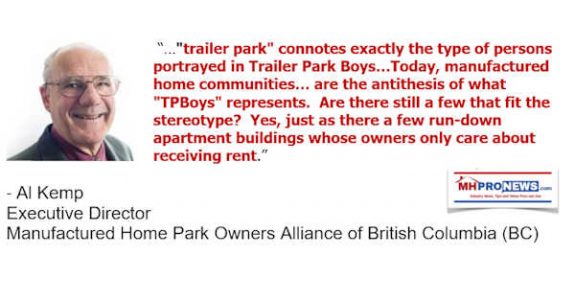

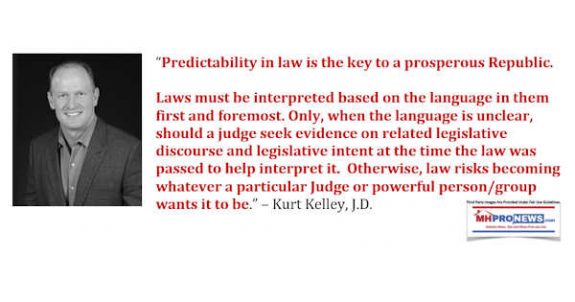
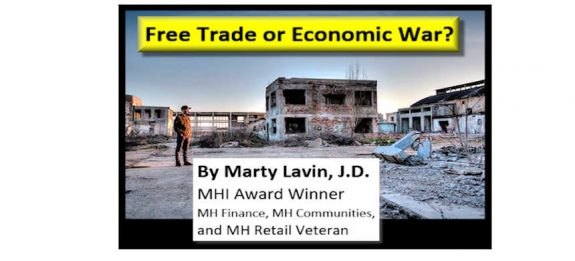


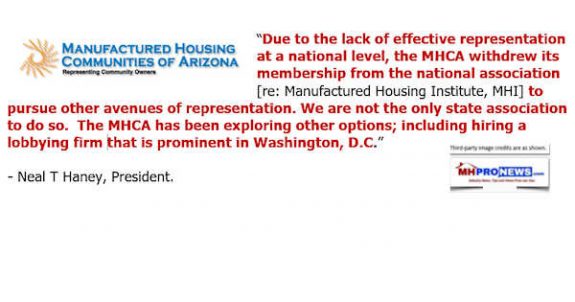

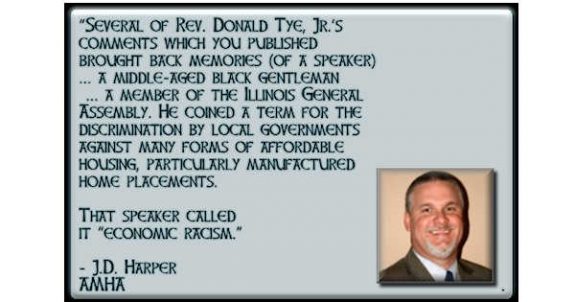
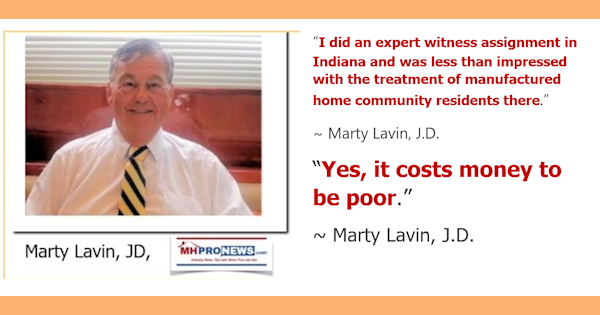

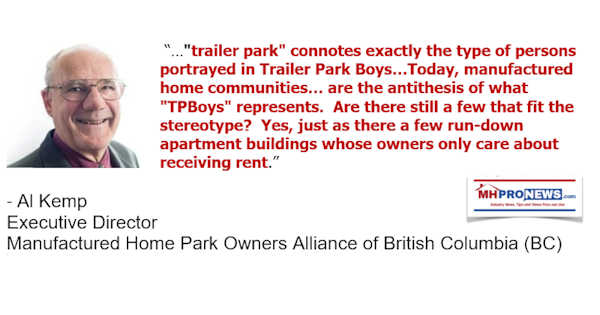
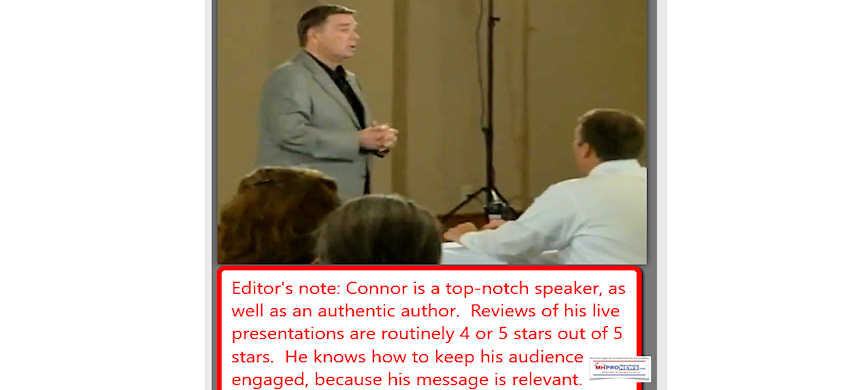
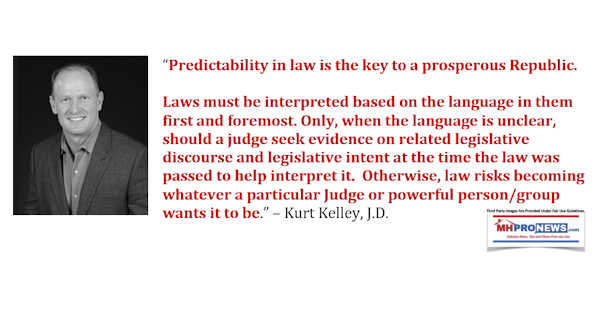
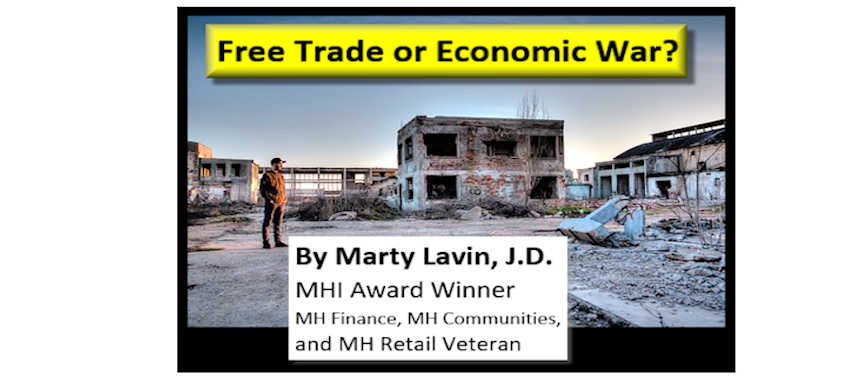
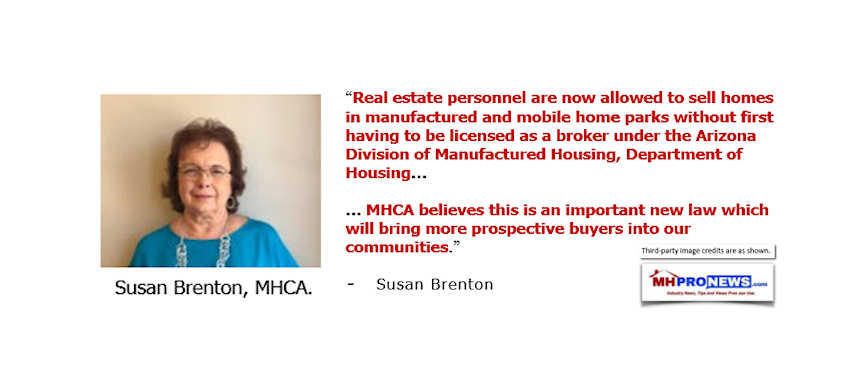

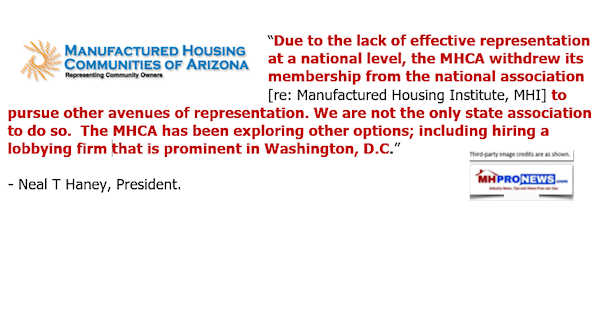

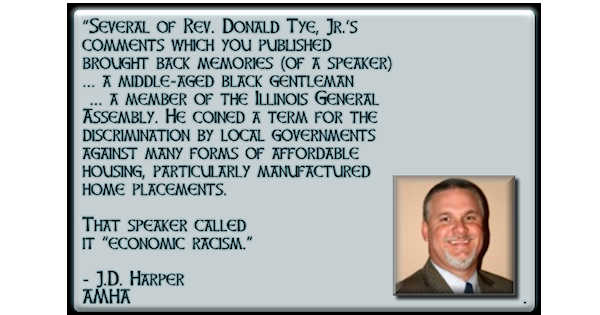
Karl Radde – TMHA, MHI, Southern Comfort Homes – Addressing Bryan City Leaders, Letter on Proposed Manufactured Home Ban
To All Concerned [Bryan City Officials, Others]: As the retail location referenced by Mr. Inderman, I would like to take a moment to address the …